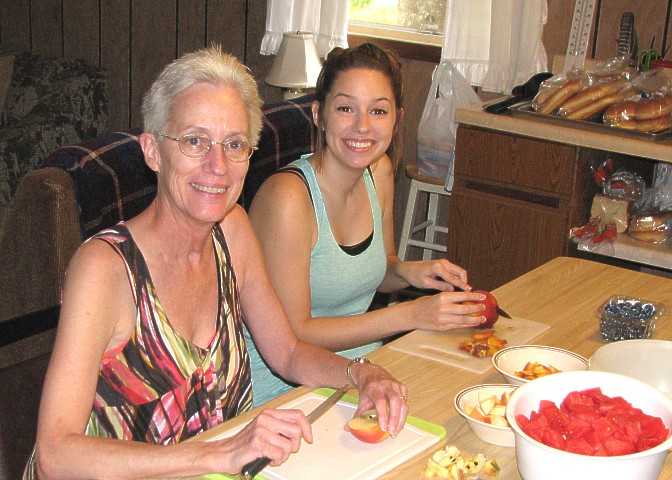
Kansas Snapshots by Gloria Freeland - Aug. 3, 2012
Work that makes us happy
I love my work, but a few weeks ago, I was feeling restless as I sat in my office - like something was holding me down. I looked around and realized how much "stuff" I had accumulated over the past couple of years. Historical photos and documents were stacked in plastic storage containers behind my file cabinets. On the floor behind my desk sat two boxes - one with class materials from previous semesters and one with articles I had clipped to file "some day."
I couldn't stand it. I went on a cleaning frenzy - tossing, recycling or shredding three printer-paper-sized boxes full of paper. I also cleared my desk and the tops of my file cabinets, dusting as I went.
I fully expected to be exhausted when I finished, but instead I felt invigorated.
"How can doing something so mindless recharge my batteries so much?" I wondered.
Then I remembered an article I read in the July 2011 "Ladies Home Journal." It was titled "Want to be Happier? Try Making Your Life a Little Harder."
It was about the research neuroscientist Kelly Lambert, chair of the psychology department at Virginia's Randolph-Macon College, had done. She is also the author of "Lifting Depression" and "The Lab Rat Chronicles: A Neuroscientist Reveals Life Lessons from the Planet's Most Successful Mammals."
Lambert studied data from Magnetic Resonance Imaging scans of the human brain, tracking responses during different activities. She also conducted experiments with rats in her lab. Among her discoveries was that "worker" rats trained to claw through cage bedding to find food showed greater boldness and persistence than what she called "trust fund" rats, which received food freely.
She contends that, in our contemporary society - where it's possible to stare at a computer screen all day and zap our dinner in the microwave at night, our body isn't often called on to work very hard. But when we clean, move furniture, dice vegetables, go fishing, make bread, do cross-stitch, sew on a button or work in the garden, we activate our own effort-driven reward system.
"Our brains are programmed to derive a deep sense of satisfaction and pleasure when our physical effort produces something tangible, visible and - this fact is extremely important - meaningful in gaining the resources necessary for survival," Lambert said.
Psychologist Susan Pollock from Harvard was also quoted in the article:
"I think for so many people, it just feels as though everything's going so fast - life, kids, hundreds of emails a day - and there's so little we do now that you can really see and hold on to. Working with one's hands is a way to slow down, to savor, to take pleasure in life again."
This got me to thinking about how there seems to be a longing for what might be called a simpler time. In those days now long gone, no television entertained us, no dishwasher did the dishes for us, our bills weren't paid on the Internet. Most people worked at jobs involving manual labor.
This is not to suggest we should return to those times, but to acknowledge that life had a lot more tasks of the type that involved touching and seeing directly what we were doing and understanding how those tasks benefitted us. New mothers are sometimes told that being a mother is the hardest job they'll ever love. That statement recognizes that being a mother, while unbelievably tiring, is also a hands-on job that shows immediate results and is, therefore, very rewarding.
Our challenge is not to give up things that make life easier and more entertaining, but to find room for activities that satisfy this built-in need for accomplishments of the kind we can touch and see.
So I think that is why I felt so revitalized after cleaning the clutter from my office.
And did it make me happy? Indeed, it did!

Daughter Katie and I preparing fruit for a salad to be served at a family reunion last Sunday. While work, it is an activity that is satisfying because it involves touching and seeing and a meaningful result.
Comments? [email protected].
Earlier columns from 2012 may be found at: 2012 Index.
Links to previous years are on the home page: Home